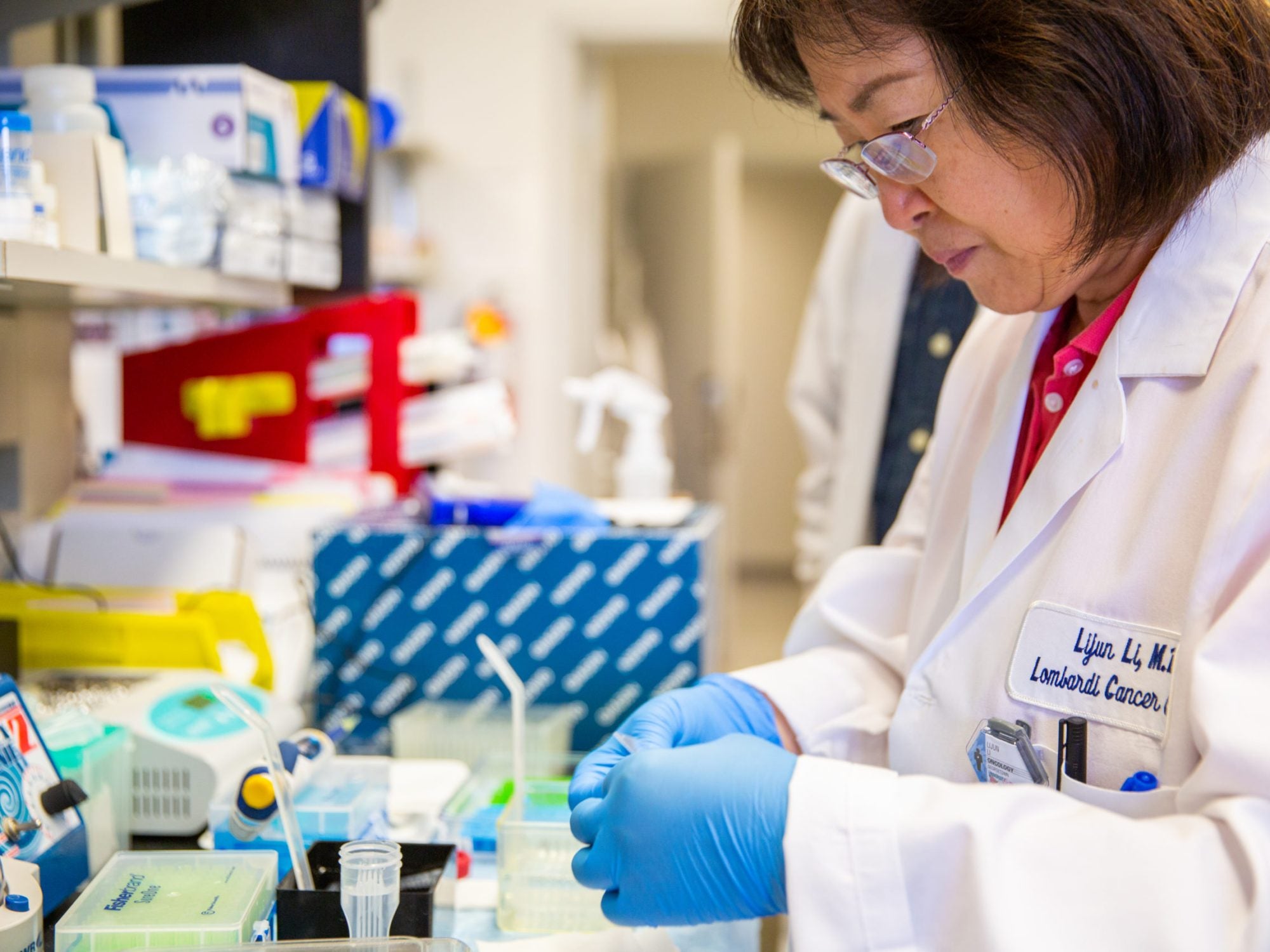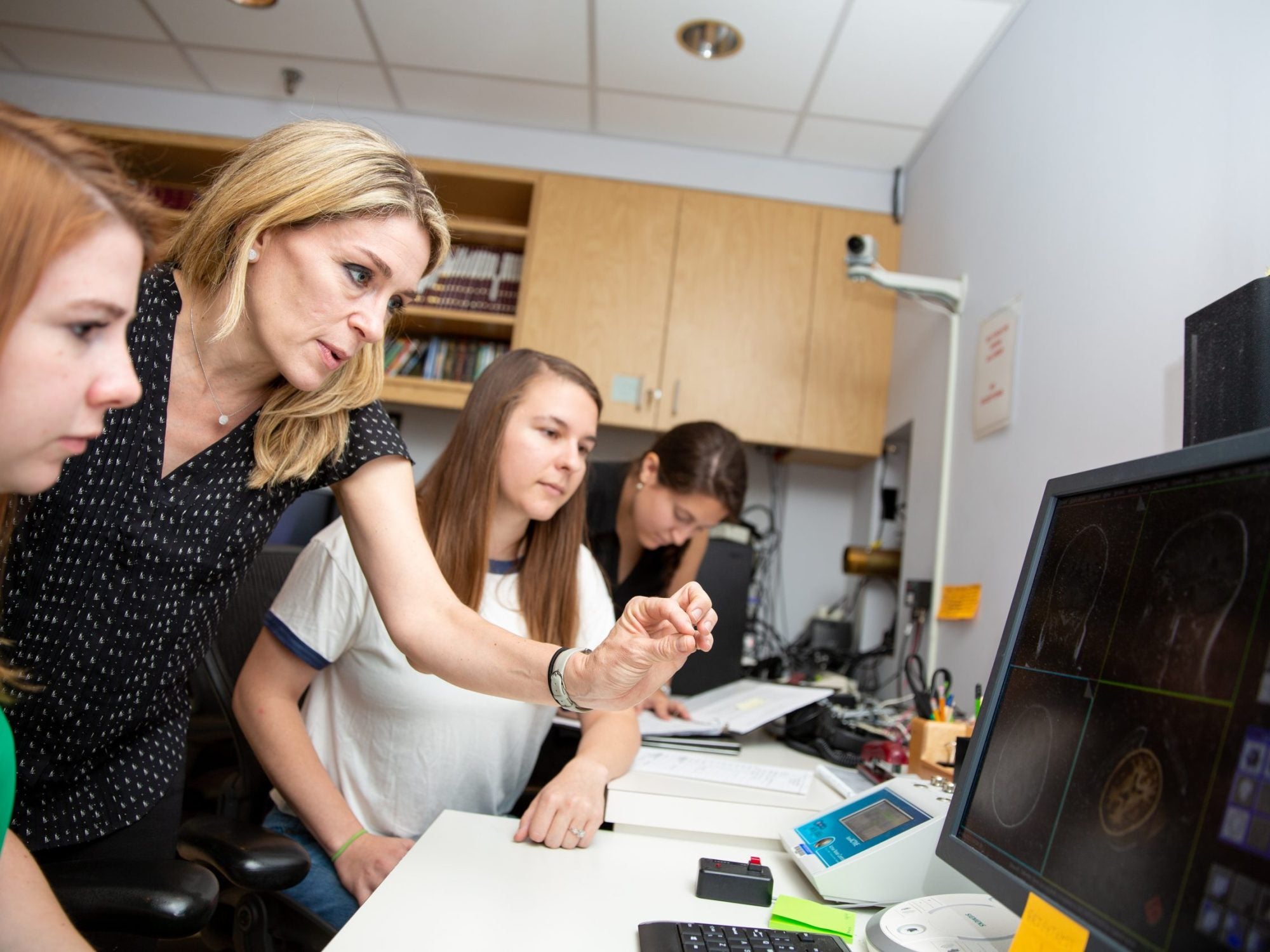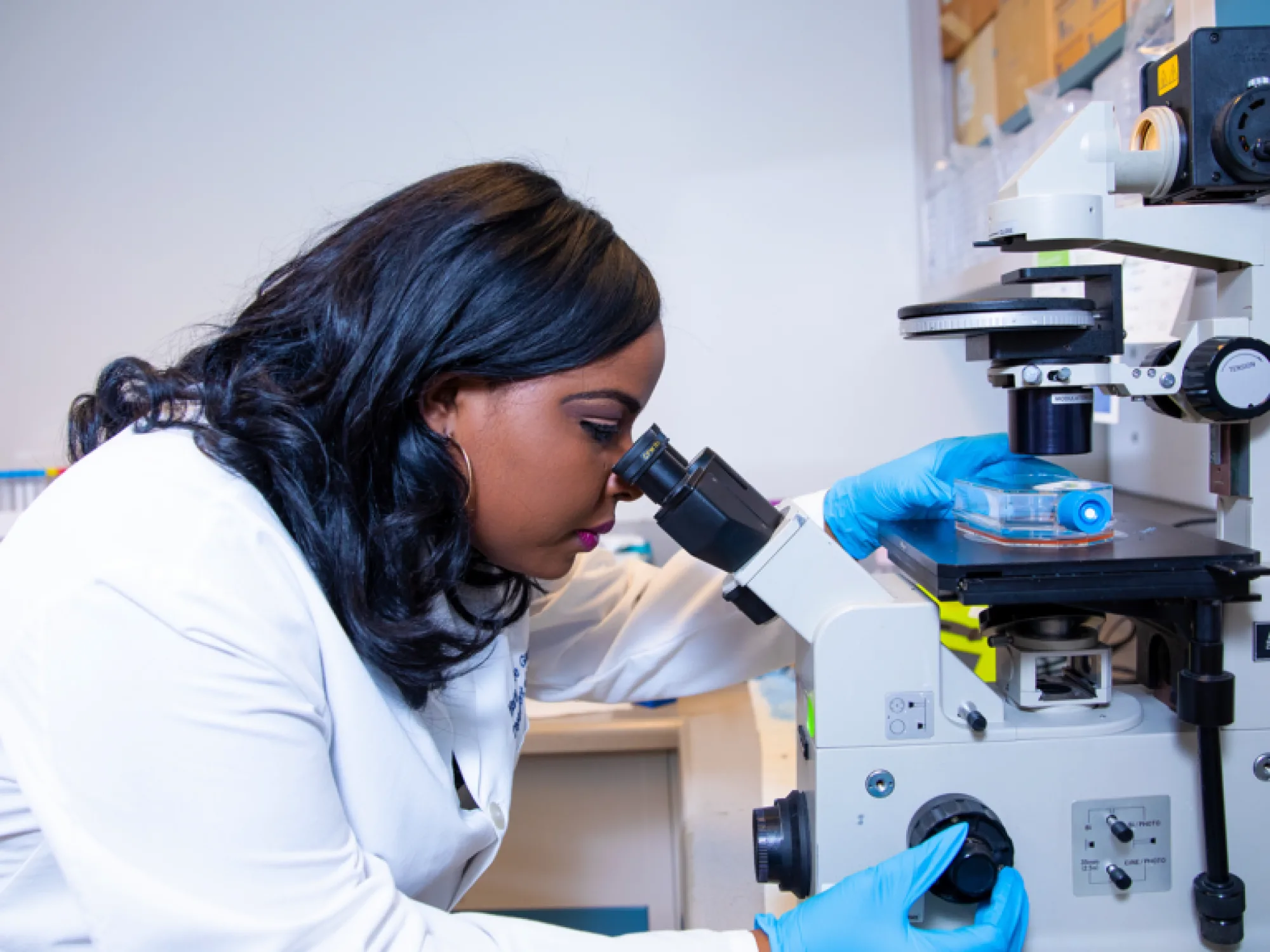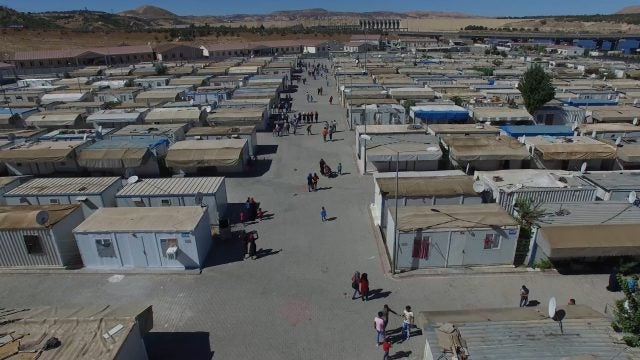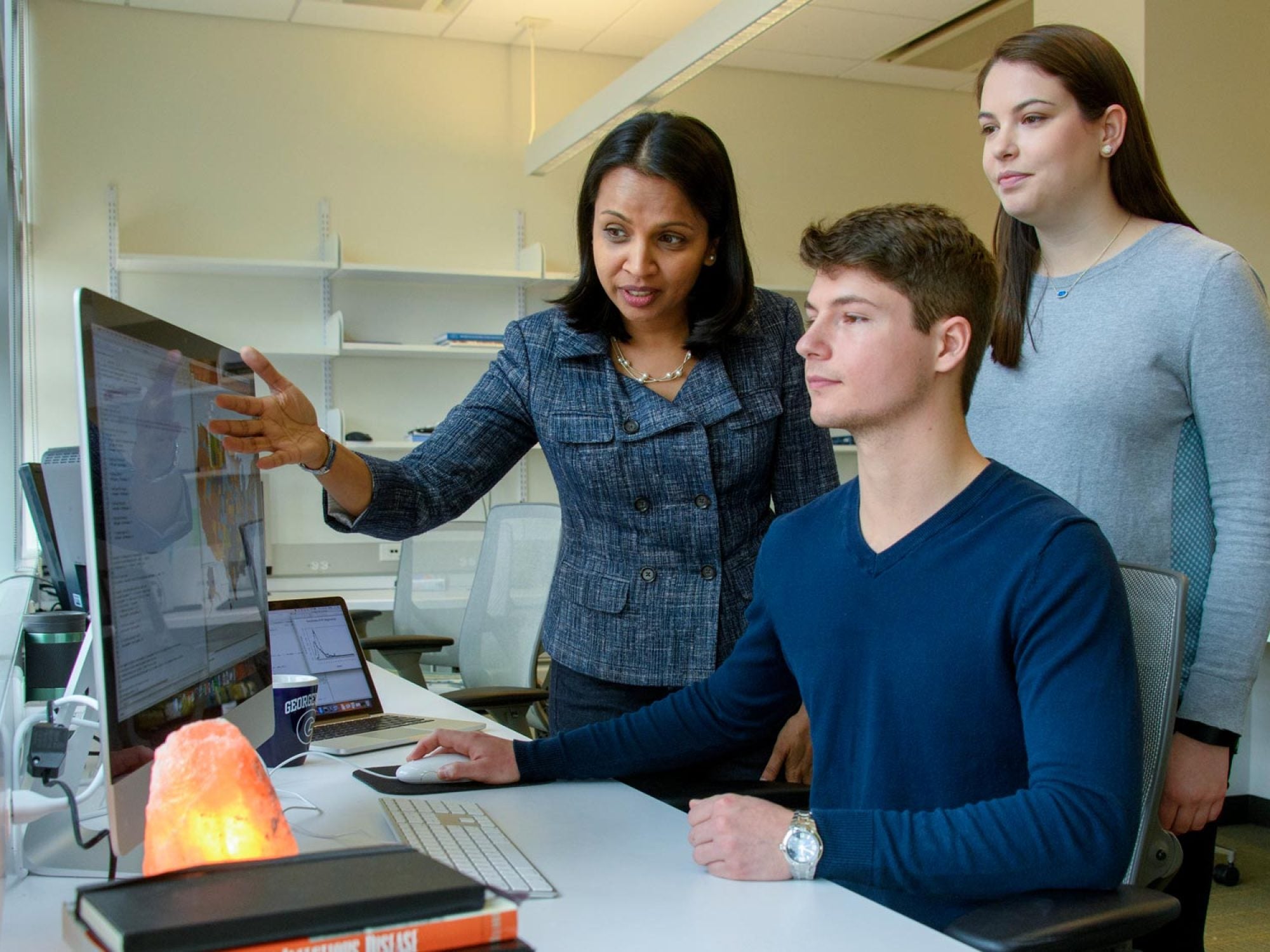Research
We are a global research community collaborating across our campuses and around the world. We’re probing frontiers across the physical, natural, and social sciences and tackling data to shape public policy and understand how society can use technological advances to improve our world.
Research for the Common Good
As people for others, our students and faculty seek the truth to solve problems for the common good. From bench to bedside and practice to policy, we are innovators who are incubating ideas and informing policy to improve our communities.
Fighting MS
Multiple sclerosis affects nearly 3 million people around the world with no cure in sight. But new research from Jeffrey Huang could revolutionize the treatment for patients with late-stage multiple sclerosis and slow the progression of the disease.
Interdisciplinary Research
At Georgetown, we pride ourselves on the high-quality research and collaboration our faculty engage in across disciplines, leveraging different fields of study to yield new insights on the most pressing, complex issues of our time.
Advancing Biomedical and Health Sciences
At the Georgetown University Medical Center, biomedical and health science researchers support a broad continuum of research, from basic science to population studies. The Medical Center fosters interdisciplinary collaboration and advances knowledge to improve human health while training the next generation of researchers.
Become a Researcher
Our students have access to state-of-the-art research facilities and world-class faculty who are eager to train and mentor the next generation of scholars. Through Georgetown’s research fellowships, centers and grants, students can start to explore their own scholarly interests and discover new paths to dig deeper into their fields.
Quick Links
Research News

Why the plague affected certain regions more is one of the enduring mysteries of the Middle Ages. It’s a riddle Professor Timothy Newfield hopes to crack nearly 700 years later.
